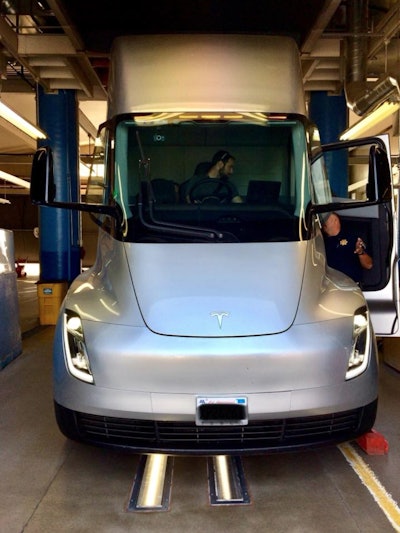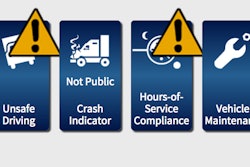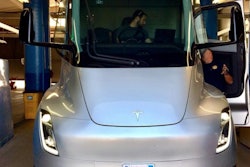
Although electrics may be in the minority of new commercial vehicle registrations for at least another generation, their presence is already noted by government agencies.
As more electric vehicles hit the road, states may be looking to replace lost tax revenues from gasoline and diesel-powered vehicles with new weight, mileage and road use taxes.
Fleetworthy Solutions, a compliance outsourcing services provider for commercial and private fleets, is seeing the changes take place on the front lines by working to register electric vehicles on behalf of its clients with state and federal agencies.
Last February, it received a request from an electric vehicle manufacturer to get titles for two of its Class 8 tractor prototypes in California. At the time the state did not have an electric fuel type for titles, says Rachel Doyle, Fleetworthy’s licensing and permitting manager.
A few weeks later, another California-based fleet contacted Fleetworthy Solutions with a similar request. In this instance it wanted to license an electric vehicle for transporting freight across state lines.
Carriers with interstate operations have to file vehicle registrations and fuel taxes in their home states, which then collect and distribute the taxes proportionately to states the carriers do business in according to the International Registration Plan (IRP) and International Fuel Tax Agreement (IFTA).
At the time, California was not able to register the electric vehicle with IRP, Doyle says. After a standstill, the state’s IRP office decided to register the truck using propane as the fuel type.
With the IRP registration complete, Fleetworthy then worked directly with the IFTA supervisor in California to obtain an IFTA decal. The state did not have an electric fuel type for IFTA and decided to use gasoline as the fuel type. It drafted a letter for the driver to have in the vehicle if questioned by an inspection officer, says Lindsay Brisky, fuel tax manager of Fleetworthy.
 At Fleetworthy’s office in Madison, Wis., the client services team manages compliance for the assets and drivers of its customers.
At Fleetworthy’s office in Madison, Wis., the client services team manages compliance for the assets and drivers of its customers.Electric trucks have been discussed at IRP and IFTA meetings for a couple of years, Doyle says, and Fleetworthy was the first to register an electric vehicle for an interstate carrier in the state of California.
Once the fleet’s IRP and IFTA credentials were in place, Fleetworthy Solutions continued working with California to determine how to report licensing and fuel taxes for the electric vehicle. California updated its policies in the second quarter to require mileage-only reporting for the IFTA side until it is determined how to tax electric vehicles. The state has produced an IFTA decal for electric vehicles.
“Electric vehicles have now come to the forefront of the IFTA and IRP community. They are going to have to decide what to do,” Doyle says.











